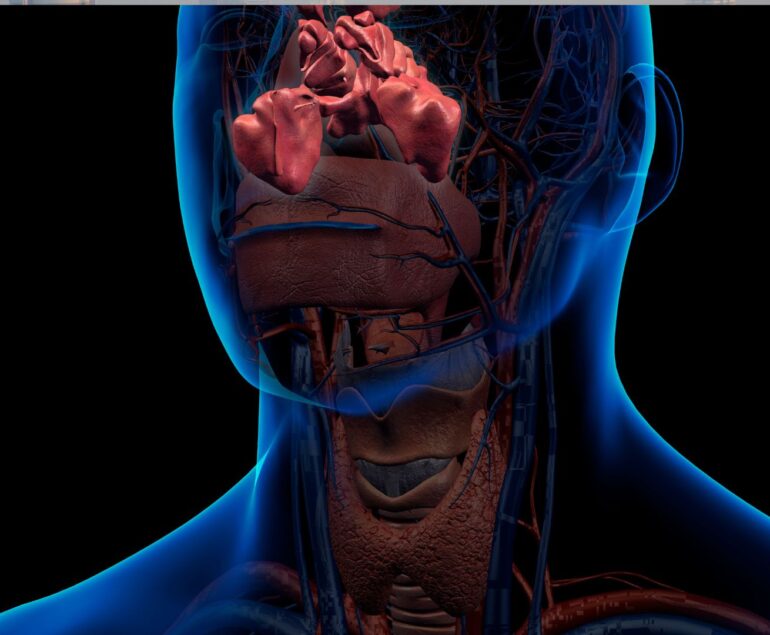Voice disorders can significantly impact one’s quality of life, affecting communication and overall well-being. As an ENT surgeon, Dr. Vivek Kumar Pathak sheds light on the causes, symptoms, and treatments of voice disorders to help individuals understand and manage these conditions effectively.
Introduction to Voice Disorders
Voice is a vital aspect of human communication, allowing us to express emotions, convey information, and connect with others. Voice disorders encompass various conditions that affect the production or quality of sound emitted from the vocal cords.
Understanding the Anatomy of the Voice
The voice production process involves complex interactions within the larynx, commonly known as the voice box. The vocal cords, located within the larynx, vibrate to produce sound when air passes through them.
Common Causes of Voice Disorders
Voice disorders can arise from multiple factors, including overuse, misuse, and underlying medical conditions such as infections or neurological disorders.
Symptoms of Voice Disorders
Individuals with voice disorders may experience symptoms such as hoarseness, vocal fatigue, or changes in pitch or volume, impacting their ability to speak effectively.
Diagnosis of Voice Disorders
Accurate diagnosis involves a thorough medical history evaluation, coupled with laryngoscopy and imaging tests to assess the vocal cords’ structure and function.
Types of Voice Disorders
Voice disorders encompass a range of conditions, including vocal nodules, polyps, and laryngitis, each requiring tailored treatment approaches.
Treatment Options for Voice Disorders
Treatment strategies may include vocal rest, hydration, speech therapy, or surgical interventions to address underlying issues affecting voice production.
Preventive Measures for Voice Disorders
Adopting proper vocal hygiene practices and avoiding irritants can help prevent the onset of voice disorders and maintain vocal health.
Lifestyle Changes to Improve Vocal Health
Simple lifestyle adjustments, such as dietary modifications and vocal warm-up exercises, can contribute to enhanced vocal function and resilience.
Supportive Therapies for Voice Rehabilitation
In addition to conventional treatments, incorporating relaxation techniques and breathing exercises can aid in voice rehabilitation and recovery.
Voice Disorders in Specific Populations
Certain groups, such as singers, teachers, or public speakers, may be more prone to voice disorders due to increased vocal demands, highlighting the importance of tailored management strategies.
Importance of Seeking Professional Help
Early intervention and expert guidance are crucial in managing voice disorders effectively, minimizing complications and optimizing outcomes.
Myths and Misconceptions about Voice Disorders
Dispelling common myths surrounding voice disorders can promote better understanding and encourage individuals to seek appropriate medical care.
Research and Advancements in Voice Disorder Treatment
Ongoing research efforts and technological advancements continue to expand treatment options and improve outcomes for individuals with voice disorders.
Conclusion
Voice disorders can significantly impact daily functioning and interpersonal relationships, but with timely intervention and comprehensive care, individuals can regain control of their voices and lead fulfilling lives.
FAQs
- Can voice disorders be prevented? While some factors contributing to voice disorders may be unavoidable, adopting proper vocal hygiene practices and avoiding overuse can help minimize the risk.
- Is surgery always necessary for treating voice disorders? Surgical intervention is reserved for cases where conservative treatments have failed to yield significant improvement or when structural abnormalities require correction.
- Are voice disorders more common in certain professions? Occupations that involve extensive vocal use, such as teaching or performing arts, may pose a higher risk for voice disorders due to increased strain on the vocal cords.
- Can voice therapy help individuals with chronic voice disorders? Yes, voice therapy conducted by a trained speech-language pathologist can be highly effective in improving vocal function and reducing symptoms associated with chronic voice disorders.
- Are voice disorders always permanent? With appropriate treatment and lifestyle modifications, many voice disorders can be managed effectively, allowing individuals to regain or maintain vocal health.
About Author:
Dr. Vivek Kumar Pathak: Renowned ENT Surgeon, Senior Professor, and Founder.
Dr. Pathak, ENT surgeon at Kailash Hospital, Senior ENT Professor at Sharda University, and founder of Entegrity Care, brings expertise and innovation to healthcare. Discover the visionary behind Doxtreat Healthcare, shaping the future of ENT care.
Website www.drvivekpathak.com
Call +917838450942
WhatsApp +91 78384 50942
Book an appointment with Dr. Vivek kumar Pathak by filling the form.




